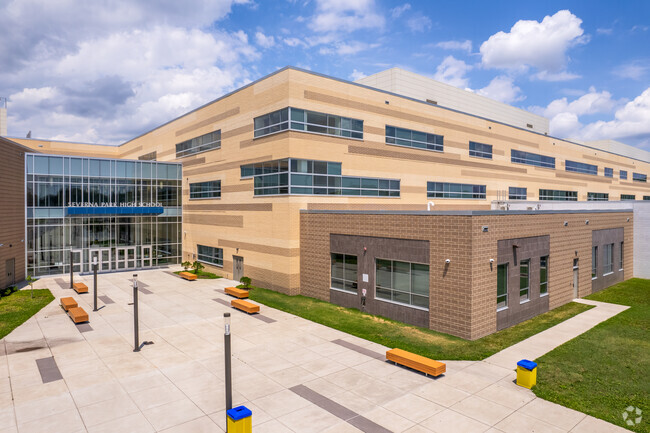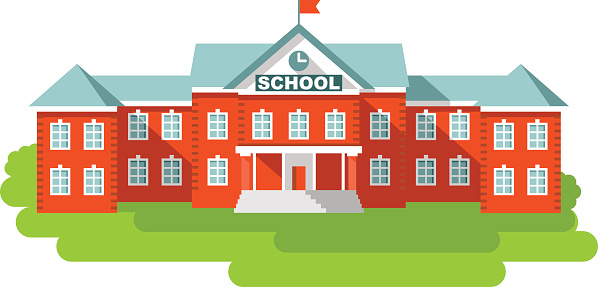The Role of Parents and Educators in the Initiative to Save Temecula Schools
The Role of Parents and Educators in the Initiative to Save Temecula Schools
Blog Article
How Schools Play an Important Duty in Shaping Future Leaders and Innovators
By integrating project-based understanding and interdisciplinary research studies, instructional organizations test trainees to assess and synthesize intricate information. Educators offer as coaches, leading students and supporting their possibility, while extracurricular activities additionally develop leadership abilities and resilience.
Promoting Essential Believing
In today's swiftly evolving world, cultivating critical believing within schools has come to be paramount. As society grapples with increasingly complicated international challenges, the ability to examine, review, and synthesize information is necessary. Schools play a crucial function in creating these skills, preparing trainees to browse and resolve multifaceted problems with informed, reasoned decisions.
To grow critical thinking, educators utilize various pedagogical methods that encourage active understanding and intellectual interaction. Class discussions, problem-based learning, and Socratic questioning contribute in promoting analytical and reflective idea processes. By testing students to interrogate assumptions and take into consideration numerous point of views, these methods ensure a deeper understanding of subject issue past memorizing memorization.
Furthermore, integrating vital thinking throughout the educational program reinforces its significance and applicability in varied contexts. Subjects such as maths, scientific research, background, and literature each deal special chances to establish pupils' essential professors. As an example, analyzing historic events requires comprehending and evaluating resources context, while clinical questions needs rigorous theory screening and evidence-based reasoning.
Inevitably, instilling vital thinking skills in pupils furnishes them with the cognitive devices required for lifelong discovering and adaptability. It is through this foundational capability that future leaders will be able to introduce, address problems, and add meaningfully to culture.
Urging Imagination
Embracing imagination within instructional structures galvanizes students to believe past conventional boundaries and check out cutting-edge services. By incorporating imaginative ventures and imaginative thinking exercises into the educational program, colleges cultivate an atmosphere where creativity and imaginative idea are valued. This approach not only enriches the academic experience yet additionally equips trainees with the capability to deal with real-world obstacles in unique methods.
School can foster creative thinking via diverse means such as project-based knowing, interdisciplinary researches, and the incorporation of arts and innovation. Project-based discovering, for example, urges students to use their expertise in functional, usually collaborative, jobs that require creative analytical skills. Interdisciplinary research studies allow students to draw connections between different subjects, consequently broadening their viewpoints and improving their innovative abilities.
In addition, giving trainees with possibilities to involve with emerging modern technologies, such as coding and electronic design, additionally supports their innovative possibility. These tasks prompt trainees to experiment, stop working, and iterate, which are crucial components of the creative procedure (Save Temecula Schools). By preserving an encouraging environment where experimentation is encouraged, institutions can guarantee that students establish the confidence to seek innovative concepts
Basically, nurturing creative thinking in educational settings is important for forming future leaders and innovators efficient in attending to intricate international concerns with ingenuity.
Promoting Collaboration

Applying group-based discovering components and participating jobs permits pupils to experience the dynamics of synergy firsthand. This not just prepares them for the joint nature of contemporary offices however also nurtures management high qualities as they commonly need to take on functions such as task managers or group planners. In addition, cooperation in the classroom can break down social barriers and promote inclusivity, ensuring that each student really feels valued and heard.
Additionally, integrating modern technology can further support collaborative efforts. Devices like shared electronic workspaces and interactive platforms allow pupils to interact efficiently, also outside the classroom. As students create these collective skills, they are much better outfitted to take on complicated challenges and introduce, preparing for their future functions as leaders and trendsetters.
Role of Educators as Advisors

Mentorship entails individualized focus, where instructors identify and support individual staminas and address weak points. Save Temecula Schools. Through individually communications, instructors can tailor their guidance and support to satisfy each pupil's distinct demands, fostering a feeling of self-confidence and strength. This customized approach grows a growth attitude, motivating pupils to see failures as opportunities for learning and growth
Furthermore, teachers function as good example, demonstrating the worths of integrity, perseverance, and empathy. Their perspectives and actions supply a plan for pupils to imitate, instilling a sense of honest obligation and social awareness. By creating a inclusive and supportive classroom environment, teachers enable trainees to develop interpersonal abilities that are crucial for effective leadership.
Essentially, the mentorship given by instructors lays a fundamental structure for the growth of anonymous future leaders, equipping them with the knowledge, skills, and worths required to master an ever-evolving globe.
Influence of After-school Activities
When incorporated efficiently into the instructional framework, extracurricular activities substantially enhance trainee growth and leadership possibility. These activities provide pupils with opportunities to discover interests beyond the standard curriculum, cultivating a versatile skill collection.
Trainees involved in music, dramatization, or discussion clubs learn to assume critically and method problems from varied viewpoints. By teaming up with peers from various backgrounds, pupils also develop compassion and communication skills, necessary qualities for future leaders.
After-school activities also play an important duty in scholastic efficiency. Research study indicates that trainees associated with such programs have a tendency to have greater qualities and much better participation documents. These activities supply a healthy electrical outlet for anxiety, adding to total wellness. Thus, institutions click this that prioritize a balanced technique to education and learning, incorporating robust extracurricular programs, are most likely to generate innovators and leaders furnished to meet the challenges of the future.

Conclusion
In final thought, institutions dramatically form future leaders and pioneers by supporting essential reasoning, imagination, and cooperation amongst trainees. By promoting a supportive environment that values individual staminas and teamwork, institutions equip trainees with the needed abilities to browse future obstacles and drive innovation.
As pupils establish these collaborative skills, they are much better outfitted to take on intricate difficulties and introduce, laying the foundation for their future functions as leaders and innovators.
By cultivating critical reasoning and problem-solving skills, instructors help pupils browse complex obstacles, preparing them for management duties in various fields.
By teaming up with peers from different histories, pupils also establish empathy and interaction skills, essential traits for future leaders.
In verdict, institutions dramatically shape future leaders and pioneers by nurturing essential reasoning, creative thinking, and partnership among students. By fostering a helpful environment that values specific staminas and synergy, institutions equip pupils with the required abilities to navigate future obstacles and drive advancement.
Report this page